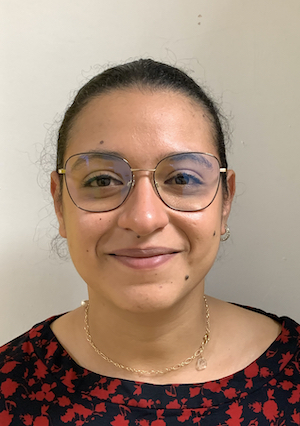GROUP 1: Metabolic impacts in tauopathies
About
Understanding the molecular mechanisms of brain ageing and neurodegenerative diseases remains a major challenge in the context of increasing life expectancy. The balance between healthy and pathological ageing depends on multiple factors and the early stages of disruption of this balance are a key point for understanding the molecular basis of neurodegenerative diseases, such as Alzheimer's or Parkinson's, in order to propose new diagnostics and treatments.
The team's strategy is to:
(1) model neurodegenerative diseases and create innovative models by inducing pathology through gene transfer or induction of inflammation and thus increase the potential of the mouse lemur model, a natural model of age-related amyloidopathy. The team is historically involved in a better characterization of the ageing Microcebus. Our studies use different approaches from genetics, transcriptomics, viral transgenesis, histology, microfluidics... to brain magnetic resonance imaging (MRI) and behavioral and cognitive studies. Finally, we are developing, from biopsies, various cellular models (fibroblasts, neurons, etc.) which we use to explore new molecular signaling pathways or test new therapeutic targets.
(2) to establish potential biomarkers to target the pathological heterogeneity of neurodegenerative diseases by focusing on the Reg-1α protein, using a multidisciplinary approach ranging from cellular studies to in vivo approaches (zebrafish, rodents, non-human primates). Reg-1α is an inflammatory protein found both aggregated in the brains of Alzheimer's disease patients, and capable of stimulating hyperphosphorylation of the Tau protein, in models of tauopathies. Currently, we are dissecting the molecular mechanisms linking Reg-1α to the lesions characteristic of tauopathies, focusing in particular on the impact of metabolic or inflammatory risk factors in this dialogue.
(3) Chronic kidney disease (CKD) is a global public health problem, and epidemiological data suggest that individuals at all stages of CKD have a higher risk of developing neuropsychiatric disorders, cognitive impairment and dementia. We are developing a new line of research at the interface between basic and medical research, with the aim of (1) understanding the impact of risk factors such as chronic kidney disease on the onset and development of neurodegenerative diseases, and (2) focusing on Reg-1α as a new biomarker at the kidney-brain interface in a pathological context.
(4) We are also developing an epidemiological line of research aimed at better identifying, in humans, the role of lifestyle and metabolic factors in brain ageing processes.
Group
Nadine Mestre-Francés, group leader
 |
Study Director EPHE Contact: nadine.frances(at)umontpellier.fr Phone: 04 67 14 42 52 |
Catherine Desrumaux, group leader
 |
Research Fellow, Inserm Contact: catherine.desrumaux-piazza(at)umontpellier.fr Phone: 04 67 14 36 89 |
Jean-Michel Verdier
 |
Study Director EPHE Contact: jean-michel.verdier(at)ephe.psl.eu Phone: 04 67 14 33 86 |
Jean-Marie Robine
 |
Demographer, Emeritus Research Director, Inserm, and Professor at EPHE Contact: jean-marie.robine(at)inserm.fr Phone : 04 67 14 33 85 |
Christelle Lasbleiz
 |
Lecturer EPHE Contact: christelle.lasbleiz(at)umontpellier.fr Phone : 04 67 14 93 47 |
Marie-Christine Lebart
 |
Lecturer, EPHE Contact: marie-christine.lebart(at)umontpellier.fr Phone: 04 67 14 38 89 |
Françoise Trousse
 |
Lecturer EPHE Contact: francoise.trousse(at)umontpellier.fr / francoise.trousse(at)ephe.sorbonne.fr Phone: 04 67 14 48 30 |
Anne Marcilhac
 |
Lecturer, EPHE Contact: anne.marcilhac(at)umontpellier.fr Phone: 04 67 14 48 30 |
Pascaline Fontès
 |
Assitant Engineer, Université de Montpellier Contact: pascaline.fontes(at)umontpellier.fr Phone: 04 67 14 42 52 |
Céline Garret
 |
Engineer, EPHE Contact: céline.garret(at)umontpellier.fr Phone: 04 67 14 42 52 |
Véronique Arnal
 |
Engineer, EPHE Contact: veronique.arnal(at)umontpellier.fr Phone: 04 67 14 38 89 |
Joel Cuoq
 |
Technician EPHE Contact: joel.cuoq(at)umontpellier.fr Phone: 04 67 14 48 68 |
Faustine Hugon
 |
Technical assistant EPHE Contact: faustine.hugon(at)ephe.psl.eu Phone: 04 67 14 48 68 |
Julien Le Friec
 |
Engineer, CDD Contact: julien.lefriec(at)umontpellier.fr Phone: 04 67 14 32 85 |
Lilou Renancio
 |
Technical assistant EPHE Contact: lilou.renancio(at)ephe.psl.eu Phone: 04 67 14 48 68 |
Seniha Pehlivan
 |
Technician CDD UM Contact: seniha.pehlivan(at)umontpellier.fr Phone: 04 67 14 42 52 |
Irene Cortijo-Tejero
 |
PhD student Contact : irene.cortijo-tejero(at)umontpellier.fr Phone : 04 67 14 48 30 |
Léa Oteagui
 |
PhD Student Contact: lea.otaegui(at)etu.umontpellier.fr Phone: 04 67 14 36 89 |
References
- Lebart MC, Trousse F, Valette G, Torrent J, Denus M, Mestre-Frances N, Marcilhac A. Reg-1α, a New Substrate of Calpain-2 Depending on Its Glycosylation Status. Int J Mol Sci 2022, 23, 8591.
- Schmidtke D, Zimmermann E, Trouche SG, Fontès P, Verdier JM, Mestre-Francés N. Linking cognition to age and amyloid-β burden in the brain of a nonhuman primate (Microcebus murinus). Neurobiol Aging. 2020 Oct;94:207-216. doi: 10.1016. PMID: 32650184.
- Varilh M, Acquatella-Tran Van Ba I, Silhol M, Nieto-Lopez F, Moussaed M, Lebart MC, Bovolenta P, Verdier JM, Rossel M, Marcilhac A, Trousse F. Reg-1α Promotes Differentiation of Cortical Progenitors via Its N-Terminal Active Domain. Front Cell Dev Biol. 2020 Aug 13;8:681. doi: 10.3389/fcell.2020.0068.
- Moussaed M, Huc-Brandt S, Cubedo N, Silhol M, Murat S, Lebart MC, Kovacs G, Verdier JM, Trousse F, Rossel M, Marcilhac A. Regenerating islet-derived 1α (REG-1α) protein increases tau phosphorylation in cell and animal models of tauopathies. Neurobiol Dis. 2018 Nov;119:136-148. doi: 10.1016 PMID: 30092268.
- Trousse F, Jemli A, Silhol M, Garrido E, Crouzier L, Naert G, Maurice T, Rossel M (2019) Knockdown of CXCL12 /CXCR7 chemokine pathway results in learning deficits and neural progenitors maturation failure in mice. Brain Behav Immun. 80: 697-710.
- Mestre-Francés N, Serratrice N, Gennetier A, Devau G, Cobo S, Trouche SG, Fontès P, Zussy C, De Deurwaerdere P, Salinas S, Mennechet FDJ, Dusonchet J, Schneider BL, Saggio I, Kalatzis V, Luquin-Piudo MR, Verdier JM, Kremer EJ (2018) Exogenous LRRK2G2019Sinduces parkinsonian-like pathology in a nonhuman primate. JCI Insight 3 (14):e98202.